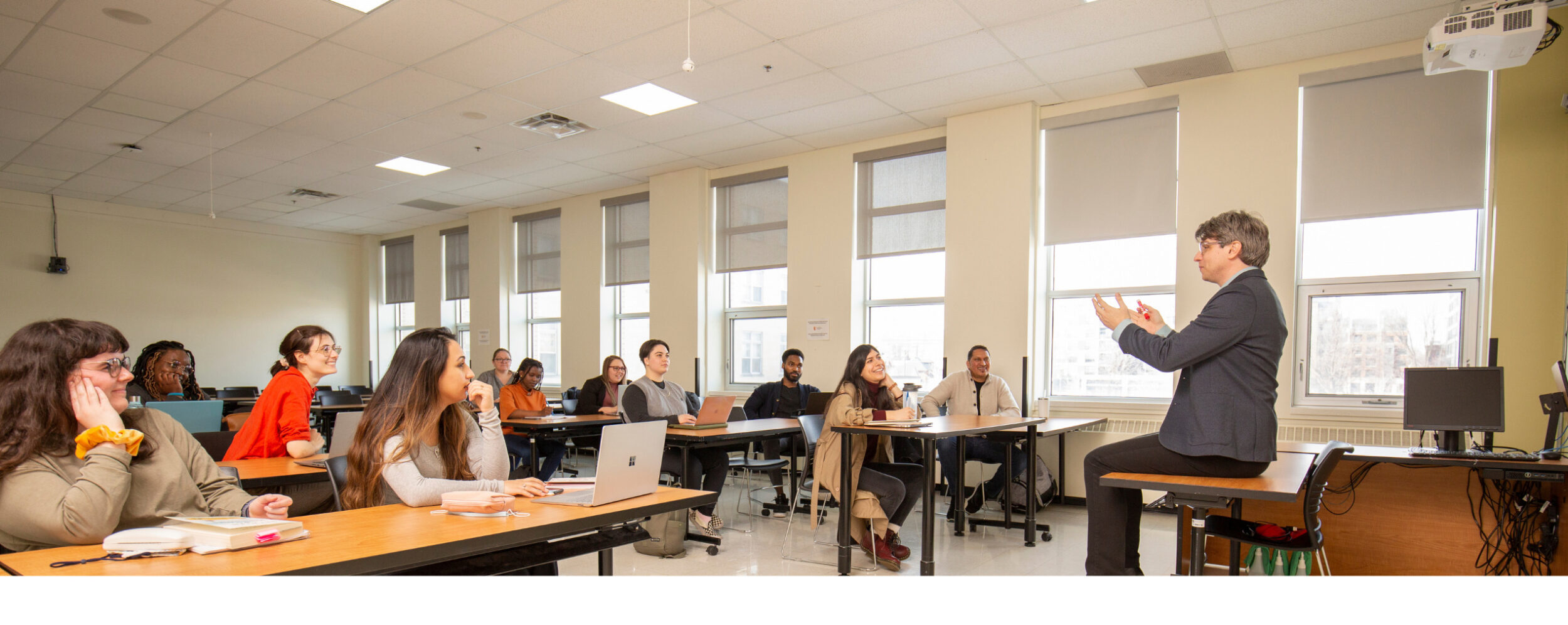The Faculty of Human Sciences at Saint Paul University addresses a variety of contemporary social issues through its programs. Some of these issues include social communications, conflict studies, human relations and spirituality, counselling, psychotherapy, social innovation, leadership, ecology and equity. These programs are designed to provide in-depth understanding and practical skills in solving today’s social challenges.
Our Schools
SOCIAL COMMUNICATION
COUNSELLING, PSYCHOTHERAPY AND SPIRITUALITY
In our global multicultural environment, there is a desire to explore the spiritual dimension of everyday life. The challenge for professionals is to use a multifaceted approach, incorporating spiritual, psychological, social, cultural and religious dimensions. Their work takes them into a variety of settings: community services, professional organizations, hospitals and local faith communities.
The faculty seeks to fulfill this objective by creating a community of scholars and practitioners committed to academic excellence, to the creative development of the individual, and to research in new areas of counselling and spirituality.
—
STUDYING HUMAN RELATIONS AND SPIRITUALITY IS ABOUT:
- Learning to master interpersonal communication and intervention techniques
- Becoming familiar with the development of the human spirit based on the culture of each person
- Exploring the different aspects of individual and collective behaviour
–
CONFLICTS STUDIES
The need to understand, explain and reconcile deep-rooted conflicts is ever increasing. Thanks to a Master of Arts degree in Conflict Studies offered by Saint Paul University, we will soon have a new generation of experts in conflict resolution and peacebuilding to call upon. The master’s program emphasizes conflicts that divide communities along ethnic and religious lines – significant challenges facing societies today.
The Master of Arts in Conflict Studies is meant for graduates in political science, psychology, theology, ethics and related fields, as well as mid-career professionals who wish to acquire a new set of competencies. Graduates will be able to analyze conflict from a multi-disciplinary perspective, and to devise effective and appropriate conflict resolution strategies and peacebuilding interventions. They will be qualified to contribute to the conflict analysis and conflict resolution capabilities of governmental institutions, non-governmental organizations, community and religious groups, trade unions and private corporations.
–
STUDYING CONFLICT STUDIES IS ABOUT:
- Exploring conflicts at different levels (local, national and international)
- The political, psychological and social aspects of conflicts
- Learning the fundamentals of active listening, negotiation and mediation
–
SOCIAL INNOVATION
Are you someone who is engaged and likes action? Do you want to do your
part to change the world? Are you looking for a university experience – the only
one of its kind in Canada – that is geared to transforming society?
–
STUDYING SOCIAL INNOVATION IS ABOUT:
- Developing solutions to social problems in various sectors (housing, health, the fight against poverty, exclusion and discrimination)
- Mastering tools and methods that make organizations more democratic and more just
- Examining different forms of collective action from the perspective of the human sciences and management
–
LEADERSHIP, ECOLOGY AND EQUITY
Want to contribute to a sustainable future? Want to address social and ecological justice? Want to be a transformative leader ? The School of Leadership, Ecology and Equity is committed to sustainable, thriving communities. We teach ecological knowledge skills through innovative scholarship and practice-based learning.
Our programs are relevant, engaging, and exciting. If you are an activist, a community developer, working in international or grassroots initiatives, education or the NGO sector, this program is for you.
Led by an innovative and multidisciplinary team, we offer small classes in our onsite and online programs.
Studying Leadership, Ecology and Equity is about:
- Understanding eco-climate and social justice;
- Transforming ecological and social inequities;
- Learning decolonizing and regenerative methodologies;
- Integrating diverse ways of knowing for positive change.
–

Social communications can be defined as the study of the emergence and social organization of technologies, contents, impacts and audiences in their social, legal, cultural and other relationships. Communication is concerned with all interactions and all forms of interaction likely to occur either in restricted groups, or in larger organizations and institutions, or in society at large, or in situations of exchange with machines.
The study of communication focuses on the fundamental process by which humans and human society develop through interaction and messages. Thus, through communication, we share ideas and information across diverse cultures, and develop our knowledge and imagination far beyond our personal experiences. So it’s not surprising that the study of communications, in one form or another, has long been a human preoccupation.
—
STUDYING SOCIAL COMMUNICATION IS ABOUT: :
–